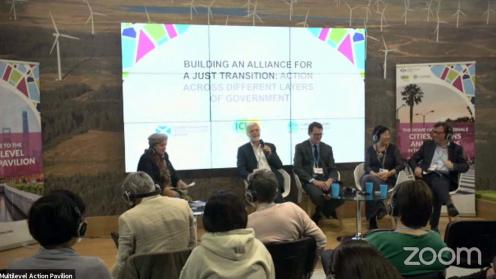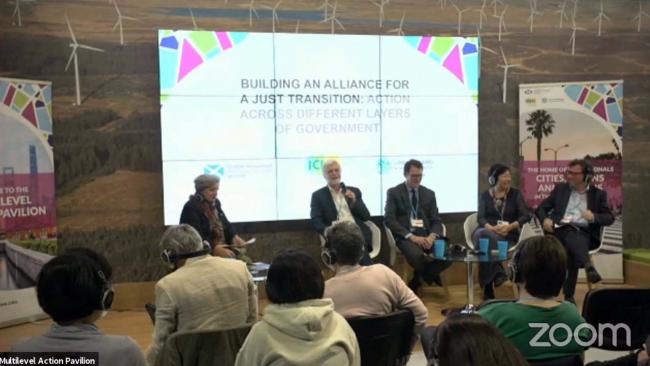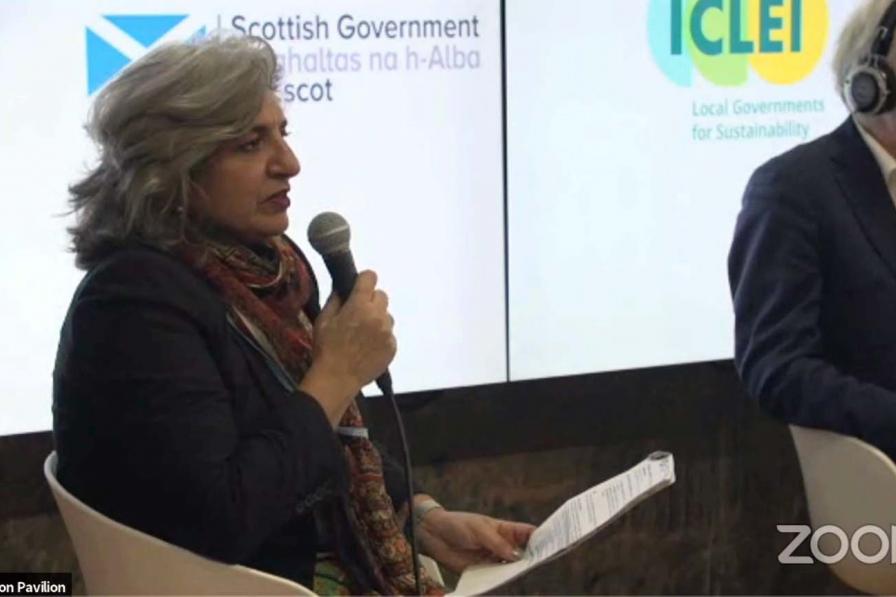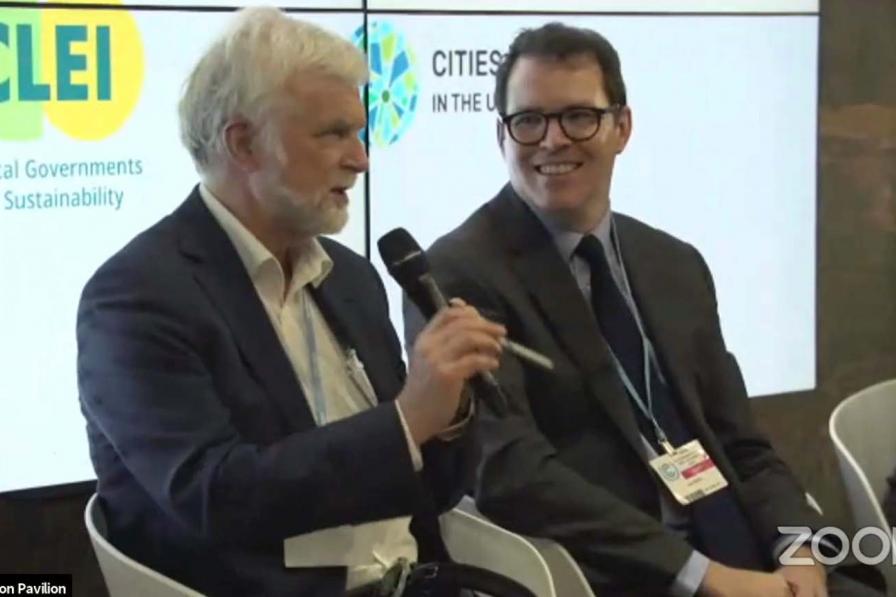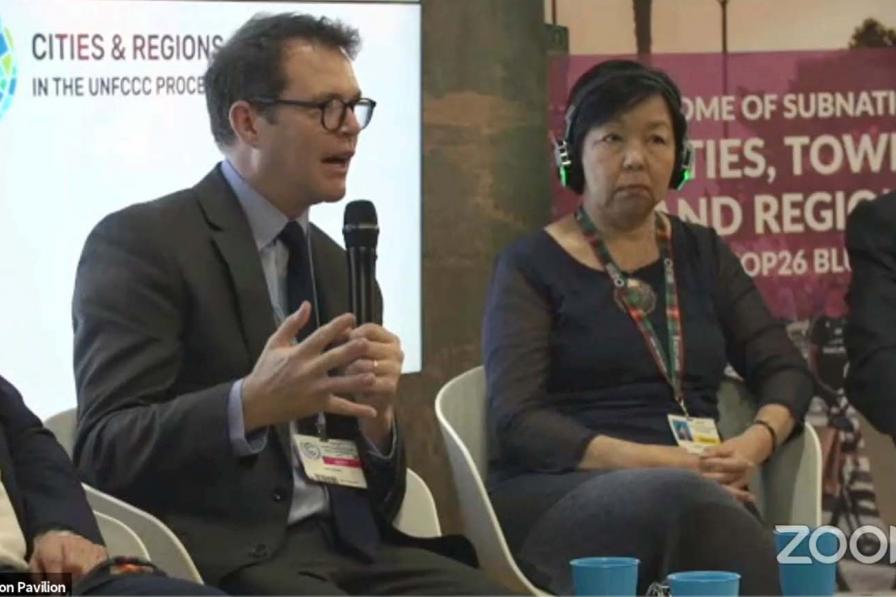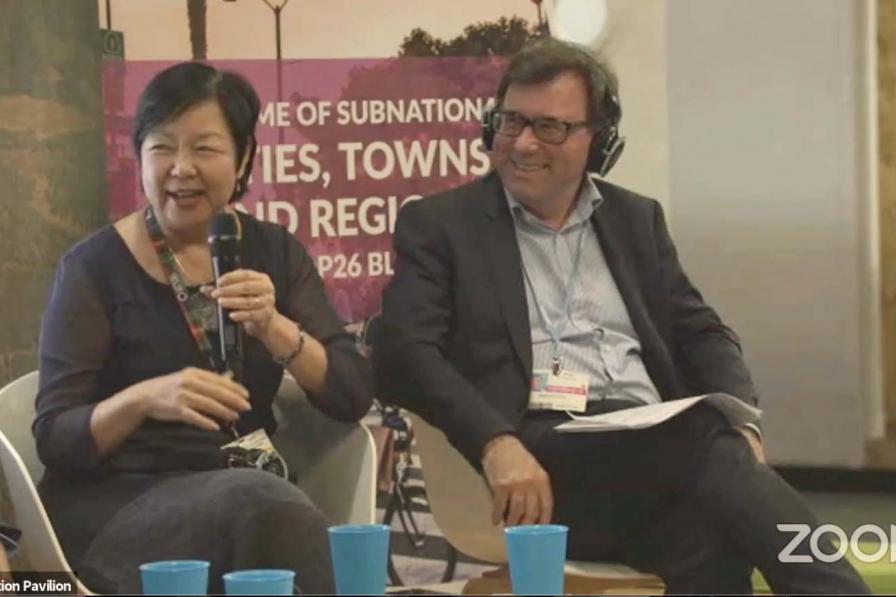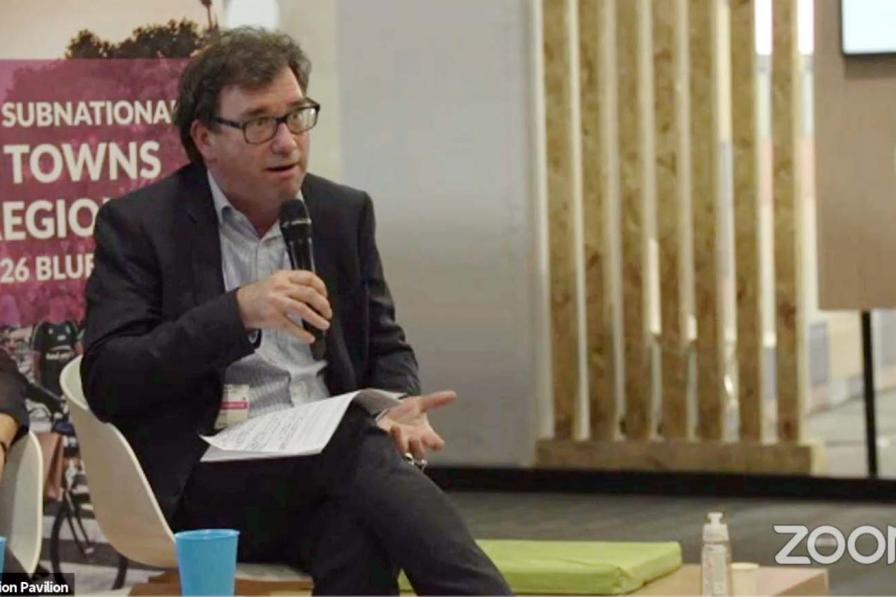Building an Alliance for a Just Transition: Action Across Different Layers of Government
Just what is a ‘just transition’ and what does it look like? It entails a whole system-change from the old way of doing things, from top-down to bottom-up, community-centric, and small business-oriented, where a healthy economy and a clean environment can co-exist. During this event, which gathered members of the Under 2 Coalition, a global community of state and regional governments committed to ambitious climate action in line with the Paris Agreement, participants discussed a just transition and what different levels of government can do to facilitate such a transition. Panelists, who represented UK, US, and EU governments and commissions, provided local examples of transitioning coal workers into the new economy, increasing small farmer biodiesel agriculture, and supporting farmers in the transition to an increase in tree planting and a timber economy.
ICLEI - Local Governments for Sustainability and the Government of Scotland co-hosted this event in the Multilevel Action Pavilion at COP 26.
Panel
Farhana Yamin, Chatham House, opened and moderated the panel, framing the discussion around climate justice and the just transition. She asked panelists to speak about how to move to a different economy from the one we currently have.
Jim Skea, Just Transition Commission, and Co-Chair of Working Group III, Intergovernmental Panel on Climate Change, Scotland, opened with four key lessons on the just transition work happening in Scotland, namely:
- planning ahead for the transition is crucial;
- using a skills agenda is needed, for example, in transitioning fossil fuel workers, determining what skills they had and used in their prior roles, and addressing how those skills can be used in a decarbonized economy;
- multi-level engagement is key, with more attention being paid to the local level; and
- ask who pays and who benefits, for example how are rural communities impacted and how will they get their electricity in the future.
Lee Waters, Deputy Minister for Climate Change, Wales, spoke on the importance of messaging on the just transition, noting that the change does not have to be a negative event for communities. He gave an example of tree planting efforts in Wales, which farmers saw as a threat to their livelihoods, as farms were converted to plant trees. The government, he added, needed to show that rural communities could still benefit from the tree planting, through carbon sequestration and a timber economy.
Kelly King, Councilor, Maui County, State of Hawai'i, US, said the transition in Maui has been one of tourism-dependent work to small scale agriculture, like biodiesel. This transition to regenerative agriculture and biodiesel, she highlighted, brought more jobs to the area than wind because the turbines are imported and biodiesel is locally integrated. King added that small-scale agriculture also had more benefits than big agriculture in both the number of jobs created and in more efficient water use.
Robert Pollock, Senior Advisor, Secretariat of the EU Initiative for Coal Regions in Transition, reminded the audience that around 250,000 thousand jobs are still connected to the coal industry in Europe. He stated that when trying to achieve a just transition in the energy sector, one needs to make sure jobs are diversified. Pollock said honoring the social contract is crucial, to show the coal sector, as well as future transitioning sectors, that government will not abandon them in this transition to a new economy.
On lessons learned, Skea stated that people in local communities must feel an ownership of the transition process. He added that governments should build on lessons learned from the COVID-19 pandemic regarding working with existing inequalities.
Waters echoed the sentiment of feeling ownership in these times of uncertainty, noting government leaders must “paint a picture of a better tomorrow,” while simultaneously not shying away from conflict. He said the science can be “terrifying,” but the idea that we can do nothing in the face of climate change is a fallacy. Waters concluded with examples of carbon credits for farmers on tree planting and shifting schools to use local, rather than imported, food.
King expanded on Maui’s biodiesel and small business programmes. She explained that, with respect to costs and benefits, while working with small businesses compared to big agriculture might cost more, it could translate into many more jobs. She said it is sometimes a difference of “everyone making a living versus a few making a killing,” and that outreach and education is crucial. She mentioned that the documentary Kiss the Ground actually led to many calls from citizens on how to transition to a more regenerative model as shown in the film.
Pollock reminded the audience that the Global North has much to learn from the Global South on the just transition, as the Global South is working on a quicker time scale. He said low-income countries also have unique circumstances regarding to coal phase-outs and require extra support. Pollock stated that targets are not solutions in themselves, and that governments must focus more on implementation. He concluded, stating that success can be found in reimagining government and creating a sense of solidarity and belief in a future for all.
Yamin provided some take-aways to conclude the event, including: a need to reinvent governance from the bottom-up, with citizens deciding how money is spent; and smaller-scale funding, through micro-grants and slow-funding, spent locally makes a bigger difference than large sums. She highlighted that the fossil fuel industry has the largest delegation at COP 26, but that other sectors who traditionally hold a lot of power, like marketing and law, should also be reinvented and push for best practice in light of climate change and a just transition.
Contact
Adel Strydom | adel.strydom@iclei.org
Ariel Dekovic | ariel.dekovic@iclei.org
More Information
To receive free coverage of global environmental events delivered to your inbox, subscribe to the ENB Update newsletter.
